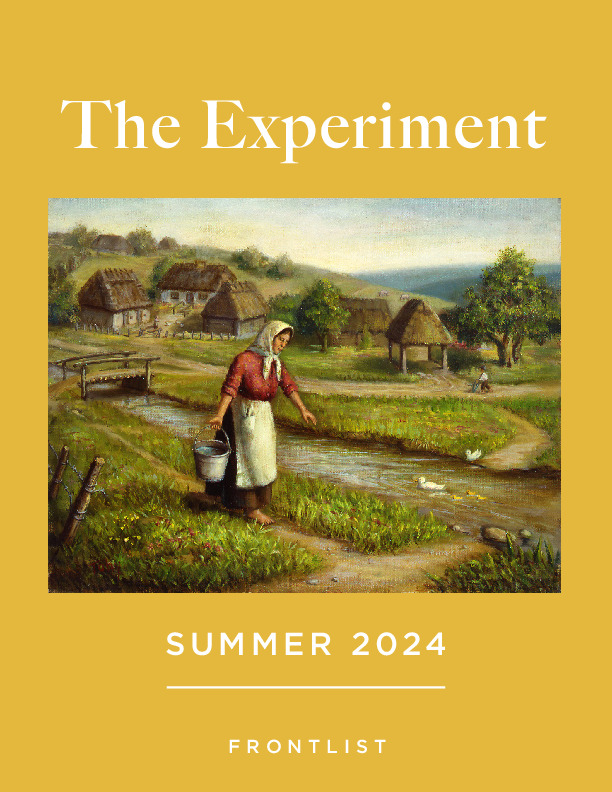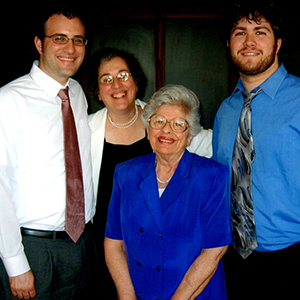 Enlarge Cover
Media/Desk Copy Request
Enlarge Cover
Media/Desk Copy Request
Available again for the first time in decades, this jewel of a memoir is the poignant story of a young Jewish girl growing up in a Polish farm village, from the peaceful early 1930s through the tragic war years, and finding safe harbor at last. “Deeply moving”—Elie Wiesel “A tone poem evocative of a vanished world”—Chaim Potok
In her own words and with her own beautiful paintings and drawings, artist Toby Knobel Fluek (1926–2011) lovingly unfurls a unique view of Jewish life. She introduces us to her village, to her family, to the people among whom they lived; she shows us how customs and holidays were observed; and, with both feeling and restraint, she illustrates how this long-enduring way of life was shattered by World War II. She depicts her family’s experiences through Russian occupation and the devastation wreaked by the Nazis—and, finally, her new beginning in America.
New to this edition is a foreword by Rakhmiel Peltz, PhD, PhD, Founding Director of the Judaic Studies Program at Drexel University, which he led for twenty years.
With 94 black-and-white and color paintings and drawings
Recommended by the Polish Cultural Institute New York
“Deeply moving.”—Elie Wiesel, author of Night
“Toby Fluek’s Memories of My Life in a Polish Village is a beautiful book. Its luminous art and water-clear prose form a world of exquisite images that in the end create a tone poem evocative of a vanished world—a poem that is not a dirge but a gentle celebration of hardships overcome and the triumph of the spirit over unspeakable horror.”—Chaim Potok, New York Times‒bestselling author of The Chosen and My Name Is Asher Lev
“Toby Fluek’s brightly remembering palette restores, for our marveling eyes, the nearly thousand-year-old life of the village Jews of Eastern Europe—God-imbued, profound in its simplicity—at the very hour of its murderous destruction by Nazi terror. Her living yet memory-wounded paintings are too vivid—hence too tragically dyed in loss—to be reduced to nostalgia: they are a plain record of the innocence that was annihilated forever by Europe’s great storm of hatred.”—Cynthia Ozick, New York Times‒bestselling author of Heir to the Glimmering World and The Shawl
“Fluek’s realistic, richly detailed paintings could be called ‘folk Vermeer.’”—New York magazine
“Wrenchingly beautiful . . . a moving memoir . . . Fluek literally ‘pictures’ her childhood in both art and words—a warm Jewish family life that included farm chores, holiday observance, and good relations with fellow villagers both Jewish and Catholic. She then describes with great restraint the devastation of her world by World War II. The individual vignettes, such as "Walking Between Bullets" and "German Prisoners of War," are devastating in the use of spare prose and detailed art. She takes the remains of her family through the Russian occupation, the horrors left by the Nazis in Poland, to a happy ending in America.”—Library Journal
“Charming yet unsentimental . . . Fluek's quiet dignity as a chronicler is fortifying. . . . Her tranquility of palette and word, though never denying the sufferings of the past, is distinctly restorative.”—Publishers Weekly
“A remarkable memoir . . . Fluek moves with powerful simplicity through the details of Jewish pre-war life, her struggle to survive the Nazi occupation, and her eventual emigration. . . . A powerful work.”—Booklist
“Fluek offers readers a window into her peaceful existence in Poland before it was shattered by World War II. Her village, family, neighbors, and friends are brought to life in her simple, yet moving, style. Her life is painstakingly depicted through images of Jewish customs and holidays, beginning in the early 1930s when she was a child, through the Nazi occupation, her escape, the loss of her family, and finally safety in the United States. The story's appeal is its simplicity and straightforward, clear descriptions, told without a great deal of emotion. Yet readers will be moved by Fluek's account of her life and the struggles of that time.”—School Library Journal




